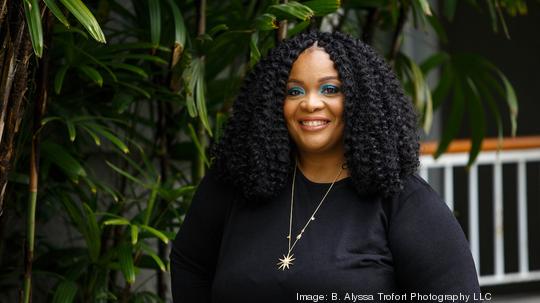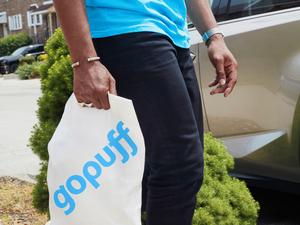
A Bala Cynwyd-based venture capital firm last week participated in a health tech startup's $1.6 million seed round that also includes tennis star Serena Williams.
Osage Venture Partners joined the financing for HUED, a digital health startup focused on connecting patients with physicians of color to improve health outcomes for Black and Latinx people. The seed round was led by the Female Founders Fund, with participation from Osage and Serena Williams’ Serena Ventures, among several other firms.
Osage invested $350,000 in HUED, the second-largest investor behind the Female Founders Fund. The firm joined the round upon seeing the growth of HUED and its position in the health care marketplace, as well as founder Kimberly Wilson’s personality, said Emily Foote, a principal with the firm.
Osage invests in business-to-business software, with a focus on education, health care and the future of work. When deciding which companies to invest in, Osage oftentimes looks at founders who have had previous enterprises, Foote said. While Wilson — a former Howard University professor and editor — hadn’t had experience with building her own company, Foote saw that she was open to feedback and that she had a passion to solve the problem she was seeking to solve.
“I was impressed with her story, the passion behind it. She was clearly smart and then, I think importantly, humble,” Foote said.

Being part of a seed round with Serena Williams is exciting, Foote said. Williams was subjected to discrimination while pregnant with her daughter Olympia. She said in a 2018 interview with Vogue that she experienced complications after pregnancy, such as blood clots in her lungs and a pulmonary embolism, but the medical staff didn’t initially listen to her.
Williams’ story shed a spotlight on the disparities in health care between Black women and white women. Black women are three times more likely to die from pregnancy-related causes than white women due to factors including varied quality of health care, structural racism and implicit bias, according to the Centers for Disease Control and Prevention.
“I think it was attractive to us because we know that she and her fund will be committed to doing all they can to help you make a larger impact, not only financial impact, but a massive impact for the better from an equity perspective,” Foote said.
Foote believes there's a massive market opportunity with HUED given the hundreds of millions of Black and Latinx patients in the United States and the need for cultural competency among health care providers. HUED has a two-pronged approach to both increase the number of doctors with cultural competence training and to connect those doctors with patients, she said.
It’s not often that Osage invests in a seed round — it usually invests in early-stage companies raising a Series A — but HUED had 8,000 patients and 600 physicians join the platform in 2020, which shows traction, Foote said. The startup is looking to grow to 50,000 patients by 2025.
“We saw an incredible opportunity in HUED to more or less get a foot in the door, so that when HUED is ready for their Series A, we can be an investor that has an opportunity to invest more meaningfully at that stage,” Foote said.







